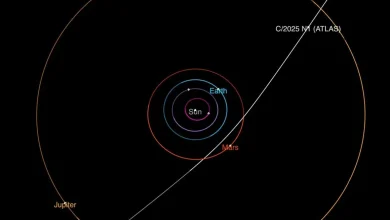Dalai Lama at 90: Vows to Live Past 130, Reincarnate in Defiance of China

DHARAMSHALA, India – On his 90th birthday, the Dalai Lama, the spiritual leader of Tibetan Buddhists, celebrated not just a personal milestone but also delivered a powerful message about his future, his legacy, and the spiritual independence of his people, setting the stage for a continued ideological clash with Beijing.
Amidst a week of vibrant celebrations in his exiled home of Dharamshala, the Nobel laureate declared his hope to live beyond 130 and affirmed that he will be reincarnated upon his death—a direct challenge to China’s assertion that it must approve his successor.
A Global Celebration in the Himalayas
Thousands of followers, monks, and international dignitaries flocked to the small Indian town nestled in the Himalayan foothills to honour the revered leader. The festive atmosphere was filled with cultural performances, prayers, and heartfelt tributes. Long-time follower and Hollywood star Richard Gere was in attendance, alongside federal Indian ministers, underscoring the Dalai Lama’s vast global influence that extends far beyond religious circles.
In a birthday message posted on his official website, the spiritual leader maintained his characteristic humility. “I am just a simple Buddhist monk,” he stated, reaffirming his lifelong commitment to promoting universal human values and inter-religious harmony.
World Leaders Extend Wishes Amidst Political Tensions
The occasion drew warm wishes from leaders across the globe, highlighting the deep respect he commands on the world stage.
Indian Prime Minister Narendra Modi praised him as an “enduring symbol of love, compassion, patience and moral discipline,” in a message on X (formerly Twitter), extending the wishes of 1.4 billion Indians.
Echoing this support, the U.S. Secretary of State, in a statement released by the State Department, lauded the Dalai Lama for embodying a message of “unity, peace, and compassion.” The statement also sent a clear message to Beijing: “The United States remains firmly committed to promoting respect for the human rights and fundamental freedoms of Tibetans… We support efforts to preserve Tibetans’ distinct linguistic, cultural, and religious heritage, including their ability to freely choose and venerate religious leaders without interference.”
The Critical Question of Succession: A Spiritual Leader’s Decree
This birthday was particularly significant as followers eagerly awaited the Dalai Lama’s guidance on his succession. He addressed their concerns head-on, stating that his non-profit institution, the Gaden Phodrang Trust, holds the sole authority to recognize his future reincarnation.
This declaration is a pivotal move to safeguard the sacred tradition from political manipulation. China, which calls the Dalai Lama a separatist and has steadily increased its control over Tibet, has repeatedly insisted that any succession process must be approved by its Communist Party leaders. The Dalai Lama’s announcement firmly places the spiritual process back into the hands of Tibetan Buddhist authorities.
Having fled Tibet in 1959 after a failed uprising, the 14th Dalai Lama has since advocated for a peaceful “Middle Way” approach, seeking genuine autonomy for Tibet rather than full independence. His latest pronouncements ensure that this struggle for religious and cultural freedom will continue, shaping his legacy for generations to come.





